2>What is SophosEncrypt ransomware?
SophosEncrypt ransomware is a recently-came up cyberthreat that works on Windows devices. This malicious software makes use of complicated cipher to create facts purposeless on the corrupted os. It touches most frequently used details such as pictures, documents, videos, statisticsbases, and archives. Afterward, cybercriminals inquiries income from victims in BTC cryptocurrency to recover numbers entry. However, we don’t recommend you to conduct this, since no one can prove that they relay you decryption program despite the fact that the payment is redirected. Instead, you can implement our guidelines so as to get rid of SophosEncrypt ransomware and decode .Sophos files.
As we said former, the malware touches information in such a way so you won’t be capable of opening files along with ..Sophos add-on unless they are recovered. Here, SophosEncrypt ransomware displays a pop-up window (information.hta) and changes desktop wallpaper that urges users to contact them as soon as possible, otherwise, the ransom amount will be double. As normal, cybercriminals proposal free-of-charge decryption of multiple files to indicate that they can terribly decode the victim’s files. Typically, such malware utilities encode information cautiously ample so that you have no alternatives but to acquire decryption programs from cybercriminals. Steady backups shall rescue you from those concerns. It is worth remarking that the files stay enchiphered even after the deletion of the ransomware, its uninstallation merely stops further enciphering.
We highly recommend not to assent in addition to their requirements as there are no assurances that you will download your files when the transaction transpires. On the adverse, there is a large hazard of being coerced and merely dropped in bundles with little. The only trustworthy way to fix the issue is to delete SophosEncrypt ransomware from the pc through relevant program so as to abort the harmful motions of the malicious program and then repair your content from the backup.
At the take much time step of the parasite stage, this ransomware may remove all shadow volumes on your device. After that, you shall not be capable of carrying out the regular process for fetching your enchiphered information via these kinds of shadow volumes. There exists two solutions to erase SophosEncrypt ransomware and restore your files. The at the start is to utilize an automated elimination program. This practise is adequate even for not experienced users because the elimination application can eliminate all cases of the malicious software in just a couple clicks. The first moment is to utilize the by hand termination guidelines. This is a much more hard way that needs certain operating system capabilities.
How SophosEncrypt ransomware gains on my device?
Cybercriminals use several methods to distribute the malware software to the target system. Ransomware malware might infect victims’ machines etc. than in one or two approaches, in the majority of cases, cryptoviral deception breach is full together with the following approaches:
Warning, multiple anti-virus scanners have detected possible malware in SophosEncrypt ransomware.
| Anti-Virus Software | Version | Detection |
|---|---|---|
| Dr.Web | Adware.Searcher.2467 | |
| McAfee | 5.600.0.1067 | Win32.Application.OptimizerPro.E |
| McAfee-GW-Edition | 2013 | Win32.Application.OptimizerPro.E |
| VIPRE Antivirus | 22224 | MalSign.Generic |
| VIPRE Antivirus | 22702 | Wajam (fs) |
| Qihoo-360 | 1.0.0.1015 | Win32/Virus.RiskTool.825 |
| Kingsoft AntiVirus | 2013.4.9.267 | Win32.Troj.Generic.a.(kcloud) |
| NANO AntiVirus | 0.26.0.55366 | Trojan.Win32.Searcher.bpjlwd |
| Baidu-International | 3.5.1.41473 | Trojan.Win32.Agent.peo |
| Malwarebytes | v2013.10.29.10 | PUP.Optional.MalSign.Generic |
| Tencent | 1.0.0.1 | Win32.Trojan.Bprotector.Wlfh |
| K7 AntiVirus | 9.179.12403 | Unwanted-Program ( 00454f261 ) |
SophosEncrypt ransomware Behavior
- Steals or uses your Confidential Data
- Redirect your browser to infected pages.
- Distributes itself through pay-per-install or is bundled with third-party software.
- Shows Fake Security Alerts, Pop-ups and Ads.
- Modifies Desktop and Browser Settings.
- Common SophosEncrypt ransomware behavior and some other text emplaining som info related to behavior
- SophosEncrypt ransomware Deactivates Installed Security Software.
- Installs itself without permissions
- Slows internet connection
- Integrates into the web browser via the SophosEncrypt ransomware browser extension
- SophosEncrypt ransomware Shows commercial adverts
- Changes user's homepage
SophosEncrypt ransomware effected Windows OS versions
- Windows 10
- Windows 8
- Windows 7
- Windows Vista
- Windows XP
SophosEncrypt ransomware Geography
Eliminate SophosEncrypt ransomware from Windows
Delete SophosEncrypt ransomware from Windows XP:
- Click on Start to open the menu.
- Select Control Panel and go to Add or Remove Programs.
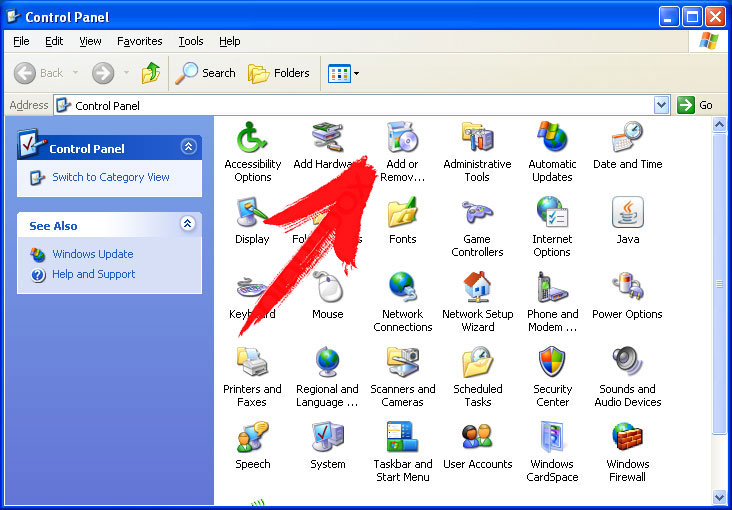
- Choose and remove the unwanted program.
Remove SophosEncrypt ransomware from your Windows 7 and Vista:
- Open Start menu and select Control Panel.

- Move to Uninstall a program
- Right-click on the unwanted app and pick Uninstall.
Erase SophosEncrypt ransomware from Windows 8 and 8.1:
- Right-click on the lower-left corner and select Control Panel.

- Choose Uninstall a program and right-click on the unwanted app.
- Click Uninstall .
Delete SophosEncrypt ransomware from Your Browsers
SophosEncrypt ransomware Removal from Internet Explorer
- Click on the Gear icon and select Internet Options.
- Go to Advanced tab and click Reset.
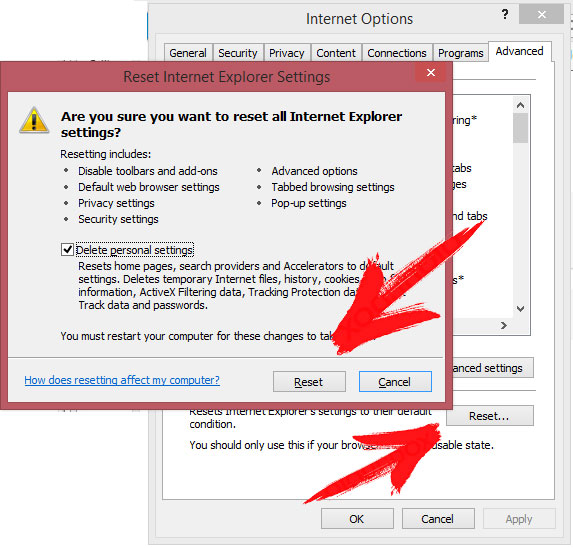
- Check Delete personal settings and click Reset again.
- Click Close and select OK.
- Go back to the Gear icon, pick Manage add-ons → Toolbars and Extensions, and delete unwanted extensions.
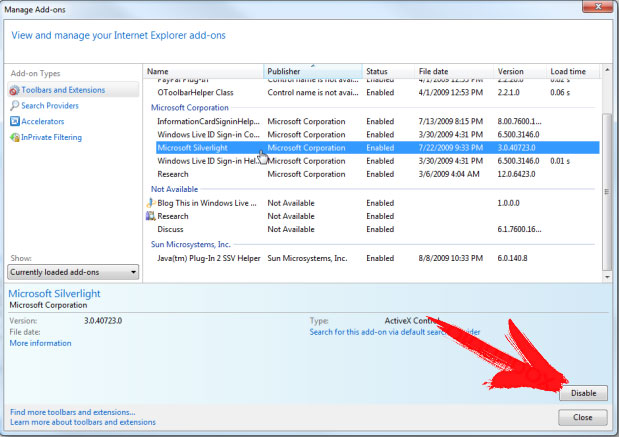
- Go to Search Providers and choose a new default search engine
Erase SophosEncrypt ransomware from Mozilla Firefox
- Enter „about:addons“ into the URL field.
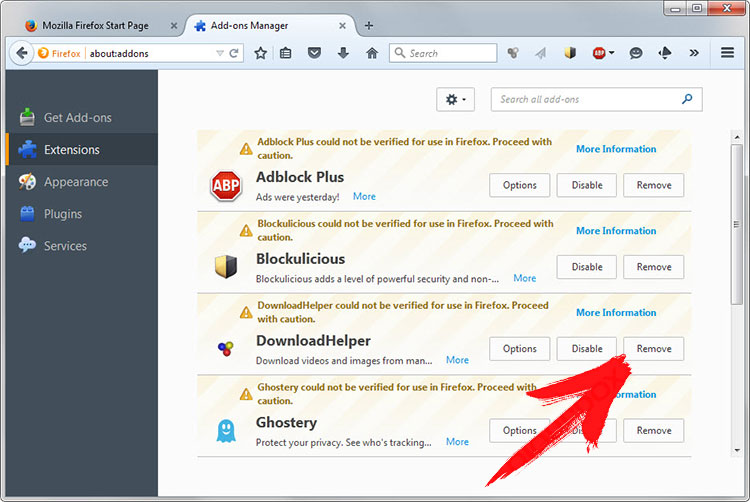
- Go to Extensions and delete suspicious browser extensions
- Click on the menu, click the question mark and open Firefox Help. Click on the Refresh Firefox button and select Refresh Firefox to confirm.
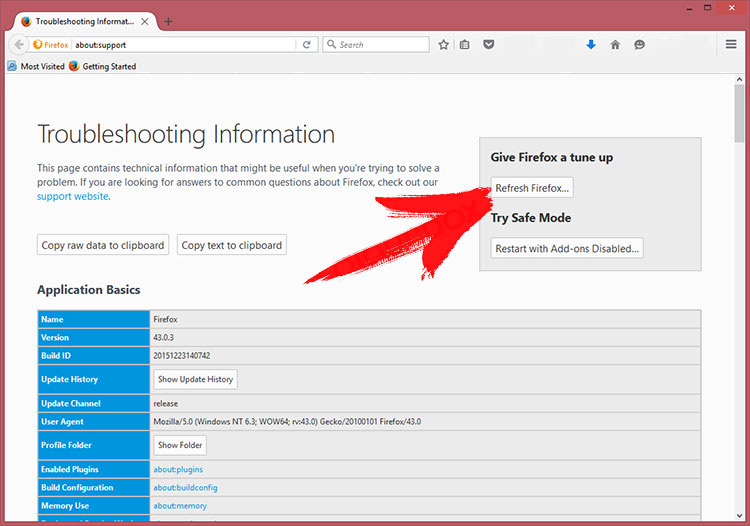
Terminate SophosEncrypt ransomware from Chrome
- Type in „chrome://extensions“ into the URL field and tap Enter.
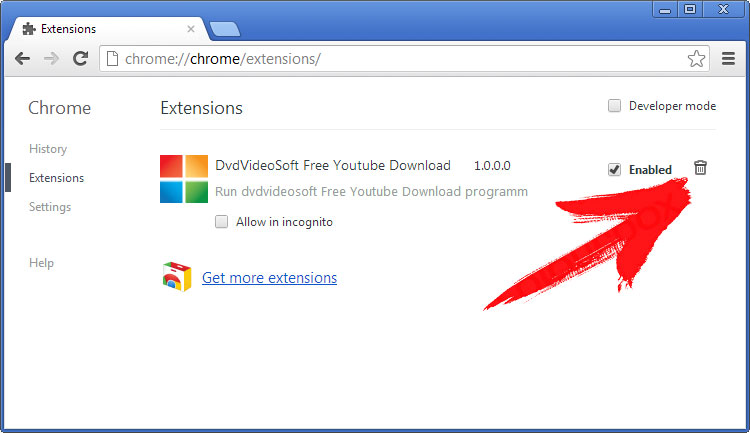
- Terminate unreliable browser extensions
- Restart Google Chrome.
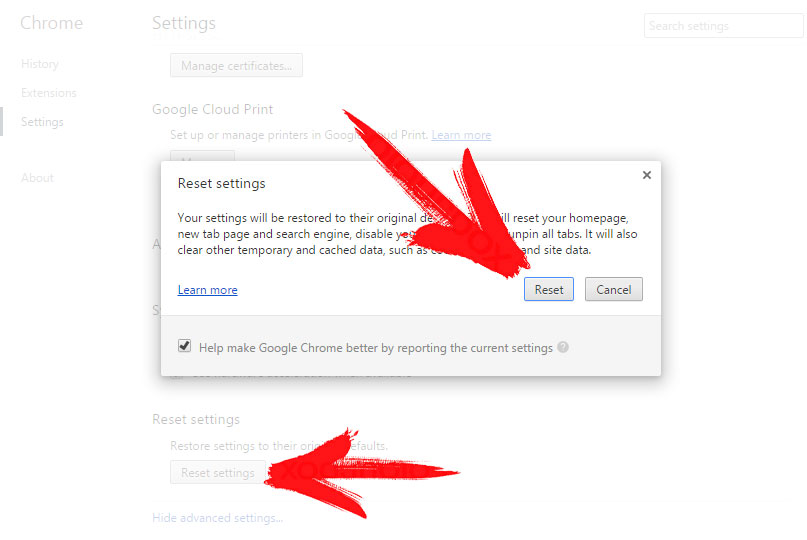
- Open Chrome menu, click Settings → Show advanced settings, select Reset browser settings, and click Reset (optional).